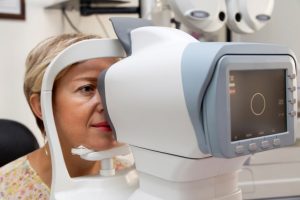
Your first step to better understanding your vision health is undergoing an eye test. Your eye doctor can actually provide insight into other areas of your health, including cholesterol, blood pressure, and diabetes. It is recommended that you have your eyes tested once every two years, but depending on other conditions, you may need to go more frequently.
Unfortunately, many people don’t undergo a regular eye exam either due to lack of coverage and funds or they don’t feel they have a vision problem, because unlike other conditions where you may experience pain or other symptoms, this often doesn’t occur with the eyes.
A spokesperson for Specsavers, Dr. Nigel Best, explained, “Tell-tale signs of vision problems include things like blurred vision, tired or aching eyes, and difficulty focusing at different distances.”
Other notable warning signs include sudden bright floating spots, seeing rainbows or halos around light, changes of color to the iris, itching or discharge around the eye, and light sensitivity. It’s also important to document if you experience headaches or feel pressure or pain in or around the eyes.
Just as you would undergo a physical examination to maintain good health, obtaining a regular eye examination is just as important. Your doctor and eye specialist can work together to provide you with greater insight into your health.
So, even if you brush off slight vision changes, what may start off mild can progress quite quickly if ignored. Therefore, ensure you are undergoing routine eye exams to prevent serious complications.
Also read:
- Top foods to boost your eyesight and vision
- Yoga for eyes: Easy eye yoga poses to improve vision
- Home remedies to improve vision and eye health
- Bulging Eyes (Protruding Eyeballs): Causes, Symptoms, and Exercises